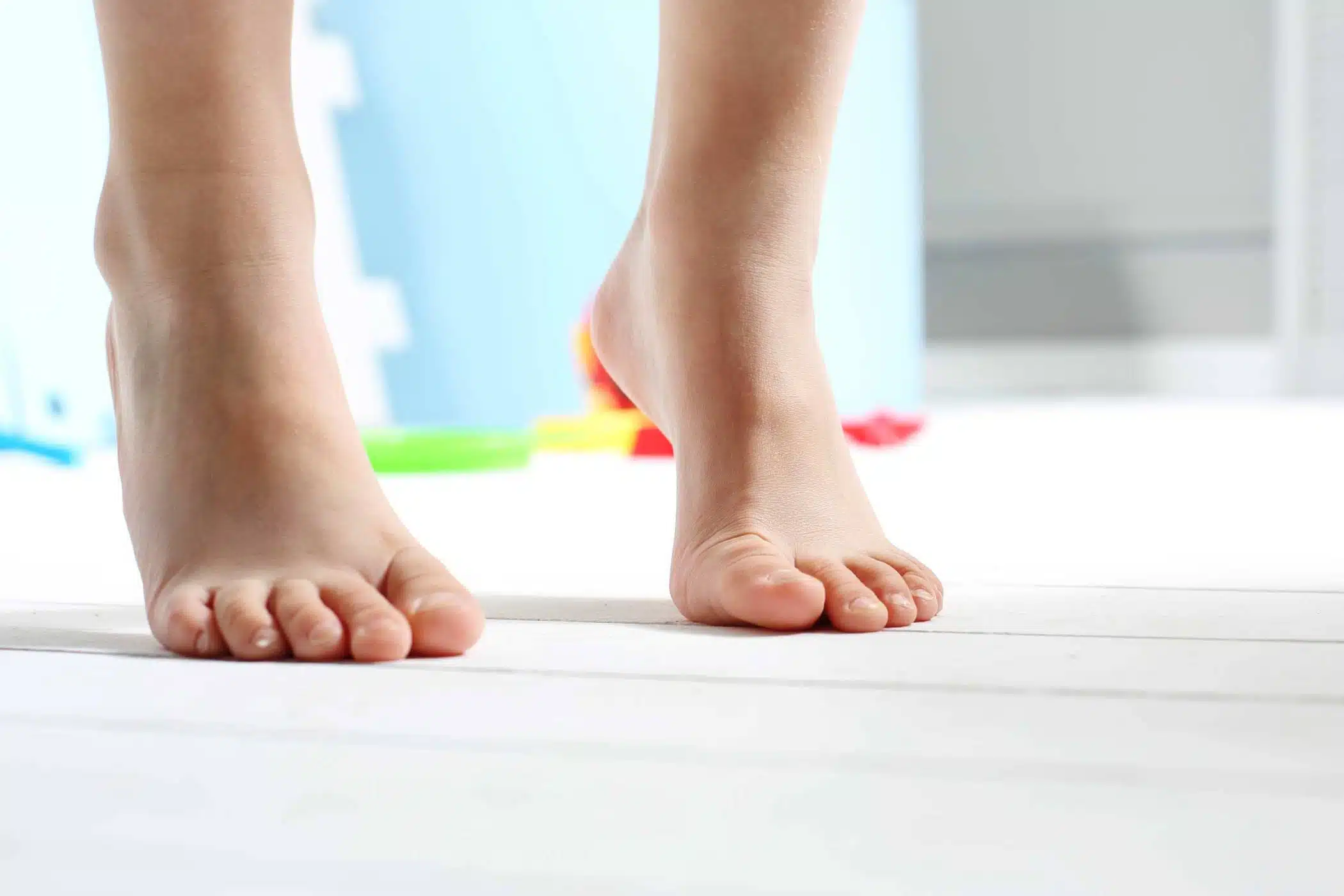Causes And Potential Solutions For Toe Walking In Children
Gross Motor Development
 Posted by: Rebecca Bazzoni 9 months ago
Posted by: Rebecca Bazzoni 9 months ago
Toe walking refers to the walking pattern where a child predominantly walks on their tiptoes without making full contact with the ground using their heels.
While occasional toe walking is common in young children who are learning to walk, persistent toe walking beyond the age of three years might indicate an underlying issue that requires attention.

Possible Causes
Idiopathic Toe Walking: In many cases, the cause of toe walking is unknown, resulting in a condition known as idiopathic toe walking. It is typically seen in children who have no other developmental or neurological conditions.
Sensory Processing Issues: Some children may toe walk due to sensory processing differences. They may seek sensory input or have hypersensitivity that makes walking on their tiptoes more comfortable.
Cerebral Palsy: Toe walking can be a symptom of cerebral palsy, a neurological condition that affects muscle control, coordination, and movement.
Muscle Imbalance or Tightness: Toe walking might occur due to tightness or imbalances in the muscles of the calf and lower leg. This can be associated with conditions such as muscular dystrophy or conditions related to muscle tone abnormalities.
Autism Spectrum Disorder: Toe walking can sometimes be associated with autism spectrum disorder, although not all individuals with autism will exhibit this behavior.
Evaluation and Intervention
If you observe persistent toe walking in your child, we encourage you to consult a healthcare professional, such as a pediatrician, physical therapist, or developmental specialist.
They can conduct a thorough evaluation to determine potential causes and provide appropriate intervention strategies for your child.
Common strategies can include:
Physical Therapy
Physical therapists can help assess muscle strength, flexibility, and overall gait patterns. They may recommend exercises, stretches, or orthotic devices to address muscle imbalances, tightness, or weakness.
Sensory Integration Therapy
If sensory processing difficulties are identified as the cause of toe walking, occupational therapists who specialize in sensory integration can provide therapy techniques to help your child modulate sensory input and develop appropriate responses.
Monitoring and Observation
In some cases, healthcare professionals may adopt a “wait and see” approach, especially if the toe walking is not consistent and causing functional limitations or other developmental concerns.
Close monitoring of your child’s gait pattern and overall development is essential in these situations.
Long-Term Effects Of Untreated Toe Walking
Persistent toe walking that is left unaddressed can lead to serious problems, which is why it’s important to have your child evaluated by a medical professional if they exhibit signs of persistent toe walking.
Untreated toe walking can result in:
- Tight ankles or muscle contractures
- Poor balance reactions and frequent falling
- Altered postural alignment resulting in poor hip and core strength
- Inability to stand with heels flat on the ground
- Difficulty with activities such as squatting and ascending/descending stairs due to tight calf muscles
- Pain in ankles, knees, or hips
- A need for surgery, serial casting, night splints, or orthotics to prevent progressive orthopedic deformity and pain.
When To Address Toe Walking
While it’s important to address persistent toe walking, it’s also important to remember that occasional toe walking is common in toddlers and young children as they explore their surroundings and strengthen their leg muscles.
However, if you have concerns or notice significant and persistent toe walking, it is best to consult with a healthcare professional who can provide an accurate diagnosis and appropriate intervention if needed.
By addressing underlying causes and providing necessary support, it is possible to help children develop an appropriate walking pattern and ensure optimal motor development.



